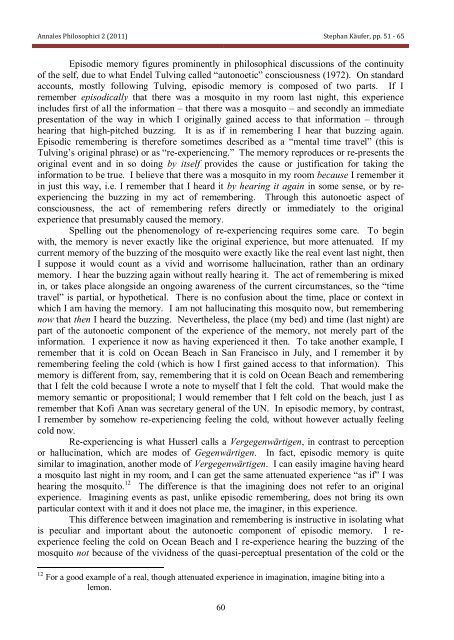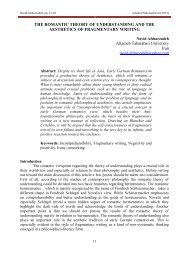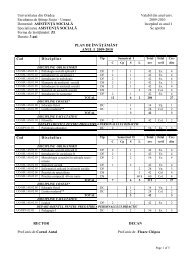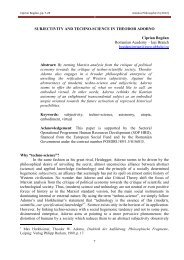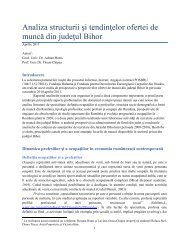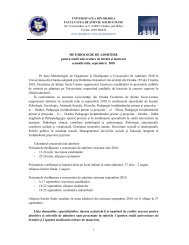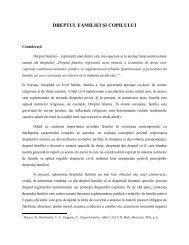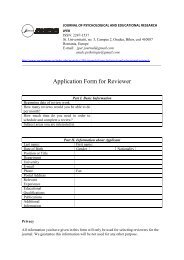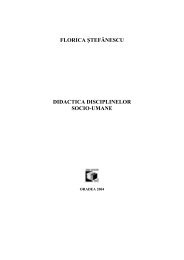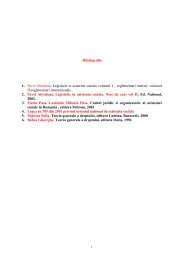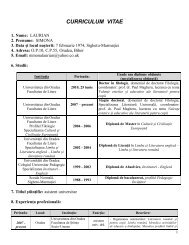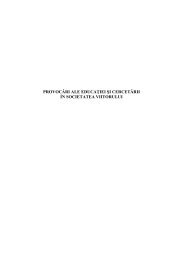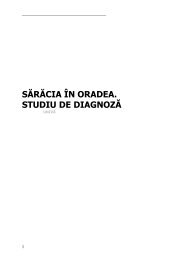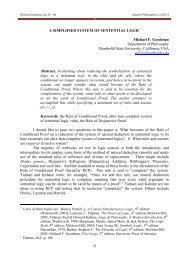Stephan Käufer: HEIDEGGER ON MINENESS AND MEMORY
Stephan Käufer: HEIDEGGER ON MINENESS AND MEMORY
Stephan Käufer: HEIDEGGER ON MINENESS AND MEMORY
You also want an ePaper? Increase the reach of your titles
YUMPU automatically turns print PDFs into web optimized ePapers that Google loves.
Annales Philosophici 2 (2011) <strong>Stephan</strong> <strong>Käufer</strong>, pp. 51 - 65<br />
Episodic memory figures prominently in philosophical discussions of the continuity<br />
of the self, due to what Endel Tulving called ―autonoetic‖ consciousness (1972). On standard<br />
accounts, mostly following Tulving, episodic memory is composed of two parts. If I<br />
remember episodically that there was a mosquito in my room last night, this experience<br />
includes first of all the information – that there was a mosquito – and secondly an immediate<br />
presentation of the way in which I originally gained access to that information – through<br />
hearing that high-pitched buzzing. It is as if in remembering I hear that buzzing again.<br />
Episodic remembering is therefore sometimes described as a ―mental time travel‖ (this is<br />
Tulving‘s original phrase) or as ―re-experiencing.‖ The memory reproduces or re-presents the<br />
original event and in so doing by itself provides the cause or justification for taking the<br />
information to be true. I believe that there was a mosquito in my room because I remember it<br />
in just this way, i.e. I remember that I heard it by hearing it again in some sense, or by reexperiencing<br />
the buzzing in my act of remembering. Through this autonoetic aspect of<br />
consciousness, the act of remembering refers directly or immediately to the original<br />
experience that presumably caused the memory.<br />
Spelling out the phenomenology of re-experiencing requires some care. To begin<br />
with, the memory is never exactly like the original experience, but more attenuated. If my<br />
current memory of the buzzing of the mosquito were exactly like the real event last night, then<br />
I suppose it would count as a vivid and worrisome hallucination, rather than an ordinary<br />
memory. I hear the buzzing again without really hearing it. The act of remembering is mixed<br />
in, or takes place alongside an ongoing awareness of the current circumstances, so the ―time<br />
travel‖ is partial, or hypothetical. There is no confusion about the time, place or context in<br />
which I am having the memory. I am not hallucinating this mosquito now, but remembering<br />
now that then I heard the buzzing. Nevertheless, the place (my bed) and time (last night) are<br />
part of the autonoetic component of the experience of the memory, not merely part of the<br />
information. I experience it now as having experienced it then. To take another example, I<br />
remember that it is cold on Ocean Beach in San Francisco in July, and I remember it by<br />
remembering feeling the cold (which is how I first gained access to that information). This<br />
memory is different from, say, remembering that it is cold on Ocean Beach and remembering<br />
that I felt the cold because I wrote a note to myself that I felt the cold. That would make the<br />
memory semantic or propositional; I would remember that I felt cold on the beach, just I as<br />
remember that Kofi Anan was secretary general of the UN. In episodic memory, by contrast,<br />
I remember by somehow re-experiencing feeling the cold, without however actually feeling<br />
cold now.<br />
Re-experiencing is what Husserl calls a Vergegenwärtigen, in contrast to perception<br />
or hallucination, which are modes of Gegenwärtigen. In fact, episodic memory is quite<br />
similar to imagination, another mode of Vergegenwärtigen. I can easily imagine having heard<br />
a mosquito last night in my room, and I can get the same attenuated experience ―as if‖ I was<br />
hearing the mosquito. 12 The difference is that the imagining does not refer to an original<br />
experience. Imagining events as past, unlike episodic remembering, does not bring its own<br />
particular context with it and it does not place me, the imaginer, in this experience.<br />
This difference between imagination and remembering is instructive in isolating what<br />
is peculiar and important about the autonoetic component of episodic memory. I reexperience<br />
feeling the cold on Ocean Beach and I re-experience hearing the buzzing of the<br />
mosquito not because of the vividness of the quasi-perceptual presentation of the cold or the<br />
12 For a good example of a real, though attenuated experience in imagination, imagine biting into a<br />
lemon.<br />
60


